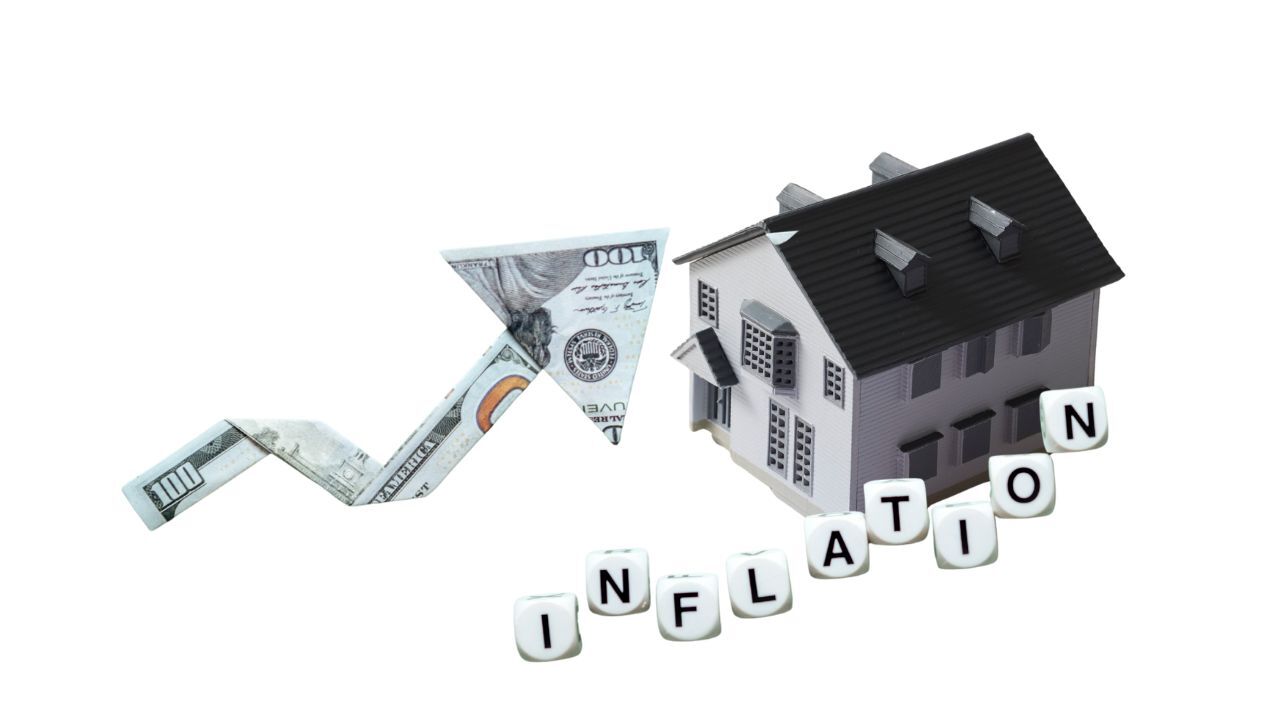 Inflation affects nearly every part of the economy, from grocery prices to the cost of borrowing. For homeowners and buyers, understanding how inflation impacts mortgage rates and payments can be a powerful advantage. While rising prices can feel discouraging, there are strategic ways borrowers can benefit during inflationary periods.
Inflation affects nearly every part of the economy, from grocery prices to the cost of borrowing. For homeowners and buyers, understanding how inflation impacts mortgage rates and payments can be a powerful advantage. While rising prices can feel discouraging, there are strategic ways borrowers can benefit during inflationary periods.
How Inflation Impacts Mortgages
When inflation rises, the value of money decreases, and interest rates increase. This is because lenders want to protect the value of the money they lend. Higher inflation can mean higher mortgage rates for new loans, which may reduce affordability for buyers. However, for existing homeowners with a fixed-rate mortgage, inflation can work in their favor.
If your mortgage rate is locked in, your monthly payment stays the same even as the cost-of-living rises. Over time, inflation makes your fixed payment feel smaller because your income and overall prices may increase, but your mortgage does not. In this way, inflation can reduce the ìrealî cost of your loan.
Fixed-Rate Borrowers Hold an Advantage
Homeowners with fixed-rate mortgages essentially win when inflation increases. They are paying back their loan with dollars that are worth less overtime, while home values and wages may rise. This combination can boost equity faster and make long-term homeownership an even stronger investment.
Borrowers who purchased homes before major inflationary periods often see this effect clearly. While new buyers might face higher rates, established homeowners enjoy steady payments and growing property values.
Why Real Estate Can Be a Hedge Against Inflation
Real estate has long been considered a hedge against inflation. As prices for goods and services rise, home values usually rise too. That means the property you own could appreciate while your mortgage balance stays the same. This dynamic helps protect your wealth and builds long-term equity, even during uncertain times.
For investors, rental income also tends to rise with inflation. That means owning property can help maintain or even increase cash flow as living costs go up.
Smart Moves for Borrowers During Inflation
Even in an inflationary market, borrowers have options:
- Lock in a fixed rate before rates increase further
- Pay down principal faster to save on interest over time
- Consider real estate as a long-term inflation hedge
- Avoid unnecessary debt, especially variable-rate loans that can rise with inflation
Inflation can be challenging, but it also creates opportunities for smart borrowers. If you already have a fixed-rate mortgage, you are likely in a good position. By understanding how inflation works in relation to mortgages, you can use it to your advantage and strengthen your long-term financial outlook.
 So, you’re considering buying a second home? Whether it’s a cozy cabin in the woods, or a beachfront retreat, the idea of owning a second property is undoubtedly exciting. However, before you get swept away by visions of lazy weekends and family gatherings, it’s crucial to understand the financial implications, especially when it comes to mortgages. Here are some suggestions to help you work through the mortgage considerations when buying a second home.
So, you’re considering buying a second home? Whether it’s a cozy cabin in the woods, or a beachfront retreat, the idea of owning a second property is undoubtedly exciting. However, before you get swept away by visions of lazy weekends and family gatherings, it’s crucial to understand the financial implications, especially when it comes to mortgages. Here are some suggestions to help you work through the mortgage considerations when buying a second home. Buying your first home is an exciting milestone in life, but it can also be overwhelming and filled with questions. As a first-time home buyer, you want to make informed decisions and ensure a smooth process. Below we will address some of the common questions that first-time home buyers often ask.
Buying your first home is an exciting milestone in life, but it can also be overwhelming and filled with questions. As a first-time home buyer, you want to make informed decisions and ensure a smooth process. Below we will address some of the common questions that first-time home buyers often ask. Getting a mortgage is a significant financial decision, and it is crucial to ensure that you are financially prepared before applying for one. Conducting a quick financial health check before applying for a mortgage can help you determine your financial standing and your ability to afford a mortgage payment.
Getting a mortgage is a significant financial decision, and it is crucial to ensure that you are financially prepared before applying for one. Conducting a quick financial health check before applying for a mortgage can help you determine your financial standing and your ability to afford a mortgage payment. A mortgage application is typically several pages in length, and it requires you to provide a considerable amount of information about your personal, professional and financial life. Some mortgage applicants may not have access to all of the information when completing the application, and others may simply skim over the form and provide incomplete answers. These are only a few of the reasons why information on the mortgage application may not be accurate, but there are several key reasons why applicants should avoid giving inaccurate information.
A mortgage application is typically several pages in length, and it requires you to provide a considerable amount of information about your personal, professional and financial life. Some mortgage applicants may not have access to all of the information when completing the application, and others may simply skim over the form and provide incomplete answers. These are only a few of the reasons why information on the mortgage application may not be accurate, but there are several key reasons why applicants should avoid giving inaccurate information. If your personal budget is similar to many other people’s budgets, your home mortgage payment is by far the largest expense that you pay for each month. In fact, this payment may easily account for 20 or 25 percent or more of your take-home income.
If your personal budget is similar to many other people’s budgets, your home mortgage payment is by far the largest expense that you pay for each month. In fact, this payment may easily account for 20 or 25 percent or more of your take-home income.